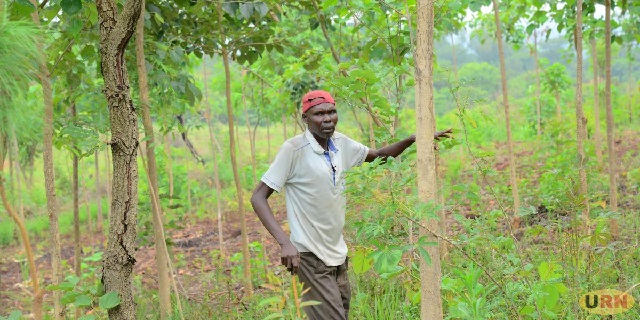After more than a decade of absence, butterflies, birds, and small animals have once again returned in full force to Okalaka Village in the Terego district. The reappearance of these indicator species, which help in pollination and seed dispersal among other roles, enhances biodiversity, supports ecosystem resilience, and improves the overall health of the environment. This biodiversity restoration breakthrough has resulted from the efforts of a European Union (EU) funded programme for “Restoring and Conserving Degraded Fragile Ecosystems for Improved Community Livelihoods among Refugees and Host Communities in West Nile and Mid-Albertine Regions”.
The project aims at supporting Uganda’s refugee response systems and is funded under the EU Emergency Trust Fund for Africa (EUTF for Africa). Ezati Robert (54), told a media evaluation tour of the project that the village lost its biodiversity landscape more than ten years ago, mainly due to cutting trees for curing tobacco and other economic activities. The owner of more than 70 acres in the area says he dedicated all of them to the restoration project, adding that this land has been family property for many years because he inherited it from his father, who also had gotten it from his grandfather.

He adds that he is practicing agroforestry on 20 of the 70 acres, and the rest are fully-fledged woodlands owned by the family. “Before this project, this area was bare, with just scattered trees, something which worries me bec.
















